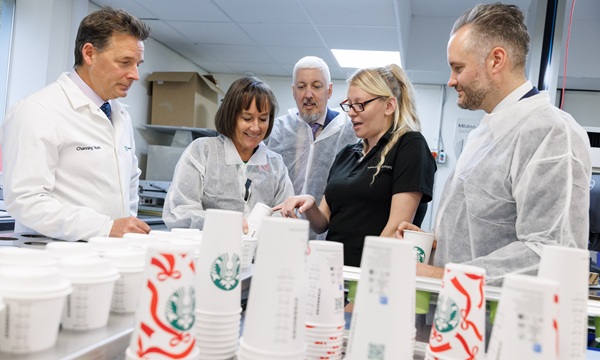A new study led by Swansea University has revealed a new way to potentially treat certain autoimmune diseases by targeting a protein that helps regulate energy production in immune cells.
Autoimmune diseases, such as rheumatoid arthritis or type 1 diabetes are driven by immune cells called T-cells, which are normally responsible for protecting the body from infections.
However, in autoimmunity, these T-cells mistakenly start attacking the body’s own tissues.
When T-cells normally respond to infections, they undergo changes in their metabolism (which is the ability to process dietary fuels like sugar and protein) to help them carry out their immune response. In autoimmune diseases like rheumatoid arthritis or type 1 diabetes, these changes go awry, causing the T-cells to harm the body. By targeting the metabolic changes in these T-cells, it could be possible to find new treatments for this condition.
The new research, published in Nature Communications, has revealed that a protein called ABHD11, found in the mitochondria (the cell’s engines that power an immune response), plays a key role in regulating T-cell overactivity. Researchers, studying immune cells from the blood of individuals living with and without type 1 diabetes or rheumatoid arthritis, have found that using a drug to stop the ABHD11 protein from working reduces inflammation by minimising T-cell over-activity, limiting their production of inflammatory signals.
The research also observed that blocking ABHD11 with the drug delayed the development of type 1 diabetes, offering hope for future therapies aimed at controlling autoimmune conditions. The research was co-led by Dr Nick Jones from Swansea University, Professor Emma Vincent, at the University of Bristol and Dr James Pearson from Cardiff University.
Dr Nick Jones of Swansea University’s Medical School, said:
“This research opens up exciting possibilities for developing new treatments that work by adjusting how immune cells use fuels from our diet – a process known as metabolism. ABHD11 could be a valuable target for drugs aimed at reducing inflammation and preventing autoimmune flare-ups.
“Current treatments for autoimmune diseases can have significant side effects and don’t work for everyone. This study adds to growing evidence that adjusting immune cell metabolism could offer a safer and more effective approach.”
The team are hoping to extend their findings into the effects of blocking ABHD11 in other immune cell types with implications towards other autoimmune diseases.
Yasmin Jenkins joint first author and PhD student at Swansea University, said:
“Manipulating immune cell metabolism in autoimmune disease offers a promising therapeutic avenue to explore, and our work highlights the exciting potential of ABHD11 as a target for the development of new treatments. With further work looking at the effects of targeting ABHD11 in other immune cell types, we hope that this potential therapeutic benefit can be extended to a wide range of autoimmune conditions”

















